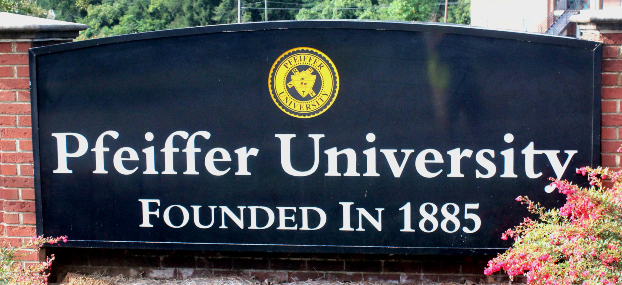Stanly native, medical professional stresses for people to take COVID seriously
Published 1:32 pm Monday, September 14, 2020
|
Getting your Trinity Audio player ready...
|
South Stanly High School graduate Mack Mabry’s education and career have taken him all across the country, where he has been able to accumulate an impressive medical resume.
From undergraduate studies at Davidson College and medical school at Duke University to spending his residency at a teaching hospital at Harvard University and studying medical oncology and molecular biology, and later serving on the faculty at Johns Hopkins University in Baltimore, Mabry has studied and worked at some of the most revered medical institutions in the world.
After spending his career as a research scientist and professor of oncology, where he worked extensively studying cancers and tumors, he now resides in California. Though he works in drug development, where he helps build clinical cancer trials, his personal focus over the past several months has been on the coronavirus pandemic.
He said working on clinical cancer trials “uses the same principals” as building trials for coronavirus vaccines.
Mabry, 68, first began paying attention to the virus in the beginning of January, when it had not yet arrived in the United States and was instead ravaging much of China. Once he learned China was shutting down entire cities to deal with the virus, “it said to me that this could be a problem.”
He spends upwards of three hours each day pouring over data about the virus, including from Johns Hopkins, which keeps a comprehensive database of cases around the world.
For someone who has been involved in the medical community since the 1970s, Mabry was unsparing in describing the significance of the pandemic.
“We have the biggest public health challenge that we’ve had perhaps in our entire history as a nation,” he said, adding that there have been numerous failures in leadership at all levels of government.
While he believed the virus would eventually find its way inside the U.S., “I didn’t think we’d be in as poor of shape as we are in now,” he said. The country leads the world with more than 6.5 million cases and around 195,000 deaths while Stanly now has roughly 1,700 cases and more than 55 deaths. Stanly’s percent of positive cases is 13 percent, much higher than the state’s average of 5 percent.
He emphasized that the virus does not care about a person’s political affiliation, how much money they make or any other demographic markers; it simply affects anyone it comes into contact with.
What concerns him most about COVID-19, the virus produced by the coronavirus, is that it is highly contagious, with many people becoming infected and spreading the virus to others. He said the degree of some patients to be asymptomatic for weeks “is unusual” compared to other viruses.
He’s especially dismayed that the public health approach to dealing with the virus has become so politicized, with people openly debating the efficacy of wearing masks and equating the devastation of the virus to the seasonal flu.
“The problem is being managed by politicians rather than scientific experts,”Mabry said, adding that certain officials have perceived it to be in their own best interests to intentionally restrict the numbers to make the crisis appear better than it really is. This has trickled down to the general population, with many people questioning medical officials like Dr. Anthony Fauci, the nation’s top infectious disease expert.
Mabry also said because the country is still struggling with testing, relying on a patchwork of state-run strategies instead of a national one, there is no reliable information about how many people have actually been infected. The head of the Centers for Disease Control and Prevention acknowledged recently that the number of people who had been infected was likely 10 times as high as the confirmed cases.
When discussing possible vaccines, Mabry said he realistically believes they won’t be available until the summer or fall of next year. He also acknowledged what many other doctors and experts have confirmed: that hydroxychloroquine has proven to not be effective in treating patients with the virus.
Even though the coronavirus recently started to infect younger people, Mabry said it is still a deadly disease and should be treated as such. The most effective tools to protect against it, he said, are hand washing, rigorous social distancing and wearing masks when out in public.
On the topic of reopening schools, Mabry said districts need to think very carefully about having in-person instruction “because there is a gap in our knowledge” due to the limited available data regarding school reopenings. He also is not sure what will happen when districts encounter outbreaks.
He is concerned that many people in Stanly County are not taking the virus as seriously as they should. While he understands that people are growing tired of hearing about the bad news associated with the pandemic on a daily basis, he said it’s still important to provide information to the public.
“You can’t make it go away by pretending it doesn’t exist,” Mabry said about the virus.
While the current caseload in Stanly is not as bad as many of its neighboring counties (though the death total has increased over the past two months), Mabry said people need to continue to take the virus seriously and take precautions or the virus could eventually become unmanageable.
His parting advice for those in Stanly County regarding the virus is simple: “Take this seriously and do what the experts tell you to do.”
Contact reporter Chris Miller at 704-982-2122.




